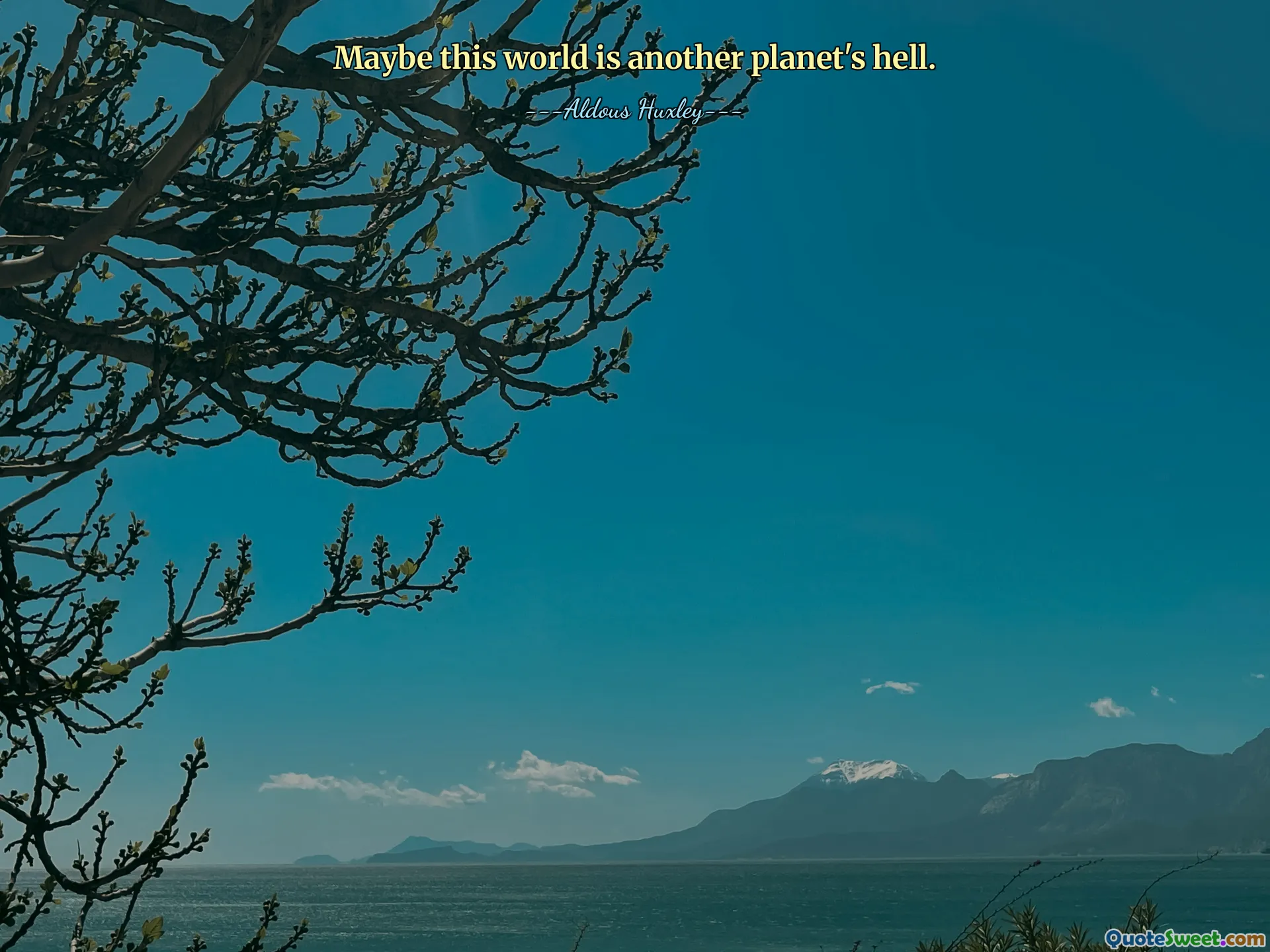
Maybe this world is another planet's hell.
This quote provokes a fascinating viewpoint on the nature of our existence and the universe. It hints at the idea that our reality might be a form of punishment or suffering imposed by some higher extraterrestrial or divine force from another planet. Such a perspective invites us to consider the possibility that our planet, including its pain, struggles, and injustices, might not be the true 'destination,' but rather a state of torment in a broader cosmic context. This notion can serve both as a critique of human suffering and a reflection on the larger unknown we are part of. Philosophically, it raises questions about the nature of good and evil, free will, and whether our universe follows a divine plan or is a random assemblage of chaos. The quote also compels us to think about the contrast between appearance and reality — what we perceive as harsh or painful could, from a different extraterrestrial perspective, be a form of learning or growth. It encourages a sense of humility and curiosity, challenging our anthropocentric view that human experiences are the ultimate reality. Such a perspective might alleviate some feelings of despair by placing human suffering in a wider cosmic stage, suggesting that perhaps our hardships are part of a bigger picture that we do not yet comprehend. Ultimately, it underlines the importance of questioning our assumptions about life, reality, and our place in the universe, inspiring a philosophical inquiry into whether our existence is a form of hell or something else entirely.







